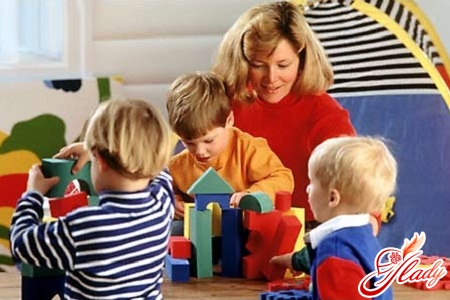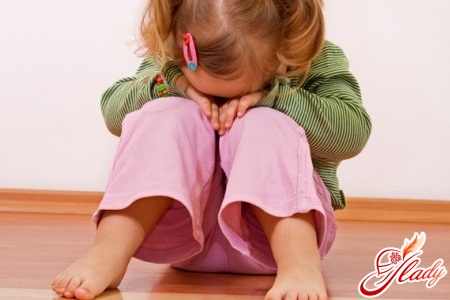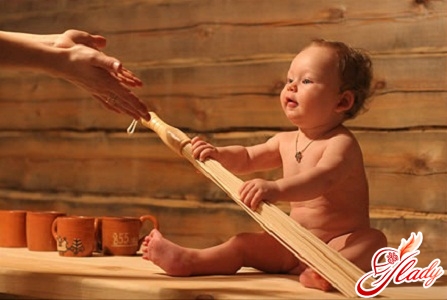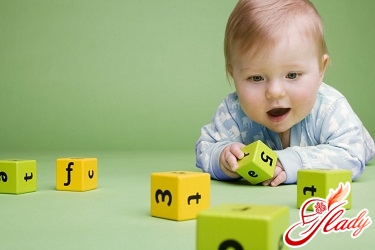 Almost all young parents are earlyor later the question of the need to send the child to kindergarten arises, because, alas, but maternity leave can last a maximum of three years. And not every family has the opportunity to use the services of a nanny. And grandmothers do not always have the opportunity, and let's face it, the desire to spend days on end with their grandchildren. This is where kindergarten comes to the aid of parents. It is no secret that today it is very, very difficult to get into kindergarten. However, the problem of how to get into kindergarten will not be considered within the framework of this article. It often happens that parents manage to achieve the almost impossible - get a place in kindergarten. However, before they have time to rejoice at this, they are faced with an even bigger headache - the child does not want to go to kindergarten. And here the adaptation of the child in kindergarten is very important. Of course, you can brush aside the child's reluctance, ignore the wild screams in the morning and take the child to kindergarten by force, comforting him by saying that sooner or later he will get used to it. However, child psychologists claim that this parental behavior tactic has a very negative impact on the fragile child's psyche. And often the consequences of such trips to kindergarten can poison the child's life for many, many years.
Almost all young parents are earlyor later the question of the need to send the child to kindergarten arises, because, alas, but maternity leave can last a maximum of three years. And not every family has the opportunity to use the services of a nanny. And grandmothers do not always have the opportunity, and let's face it, the desire to spend days on end with their grandchildren. This is where kindergarten comes to the aid of parents. It is no secret that today it is very, very difficult to get into kindergarten. However, the problem of how to get into kindergarten will not be considered within the framework of this article. It often happens that parents manage to achieve the almost impossible - get a place in kindergarten. However, before they have time to rejoice at this, they are faced with an even bigger headache - the child does not want to go to kindergarten. And here the adaptation of the child in kindergarten is very important. Of course, you can brush aside the child's reluctance, ignore the wild screams in the morning and take the child to kindergarten by force, comforting him by saying that sooner or later he will get used to it. However, child psychologists claim that this parental behavior tactic has a very negative impact on the fragile child's psyche. And often the consequences of such trips to kindergarten can poison the child's life for many, many years.
Reasons for refusing a child from attending kindergarten
This means that this problem must not be solvedignore, but urgently solve. And the first thing that needs to be done is to understand why the child is capricious, does not want to go to kindergarten. All children are absolutely unique individuals, with their own way of thinking, outlook on life and ways of expressing emotions. And therefore, the reasons why a child actively protests against going to kindergarten can also be very different. And, accordingly, the ways to solve this problem should also be different. Moreover, each child requires their own individual approach. As statistics show, parents themselves are often the culprits of the formation of a negative attitude towards kindergarten in a child. And these problems begin at the very beginning - during the adaptation period, which all children go through without exception. Child psychologists and therapists divide all children into three main groups, depending on how this adaptation period is going for them:
Very often parents ask about whatfactors affect the course of the adaptation period. One of the most important factors is the age at which the child began attending kindergarten. And, despite the fact that the nursery group of the kindergarten begins accepting children from the age of one and a half years, both doctors - therapists and child psychologists strongly advise against sending a child to kindergarten before he or she is three years old. Otherwise, if the child is very small, parents will certainly encounter frequent illnesses of their baby, and various neuropsychiatric disorders. However, even if the child went to kindergarten at an older age, you should not hope for a very easy, and even more so fast, adaptation, otherwise you can be very disappointed. As a rule, the duration of the adaptation period is approximately one month. But, naturally, it can vary greatly - from a week to several months, depending on the individual characteristics of each specific child.
What can cause psychological discomfort to the child?
By the way, the child's reluctance to go to kindergartenkindergarten, fear of it in the first days, and even weeks, after the beginning of attendance are quite understandable and natural. Moreover, they indicate that the psychological development of the child is proceeding absolutely normally. There are several main factors that cause the greatest psychological discomfort to the child:
- Environment
As everyone knows, the most important condition forpsychological comfort and confidence, stability is vital for a child. However, the environment in a kindergarten is radically different from the home environment. Moreover, often such trifles that an adult would not even pay attention to can throw a child out of mental balance - the color of curtains, bed linen, lighting, etc.
- Daily regime
There is one well-worn truth - beforesend your child to kindergarten, be sure to gradually transfer him to the daily routine that will be in the kindergarten. However, parents almost always ignore this very reasonable advice. And as a result, a child who is used to sleeping until 10 - 11 am, will inevitably protest against the fact that at 7 am he is forcibly taken out of a warm bed and practically dragged to kindergarten. And his beloved mother will leave. How can you not burst into tears? In order to avoid an extra irritating factor for the child's psyche, it is necessary to find out in advance the daily routine in the kindergarten that the child will attend. And start, at least a month before the expected date of the first visit to the kindergarten, to begin accustoming the child to it. In this way, parents will greatly simplify life for themselves and their baby.
- Eared child's ego
Another factor that is very strongly opposedmany children protest – it is a collective. And there is nothing surprising in this – for several years the whole world revolved around the child, his feelings, desires and needs. And now the child is surrounded by a large number of children, and he is no longer the center of attention, since the teacher, with all his great desire, simply physically cannot give all his attention to each child separately. As a rule, this is a particularly strong traumatic factor for those children who are alone in the family, or the younger ones. After all, let's face it – younger children are always a little more spoiled, even if the parents try their best not to separate the children under any circumstances. In order to reduce the severity of this traumatic factor, psychologists advise surrounding the baby with children as often as possible – on playgrounds, children's parties.
- Strange people
Quite a large number of strangers,that begin to surround a child who has gone to kindergarten. Educators, nannies, music and physical education workers - it is extremely difficult for a child to get used to them. The child begins to experience serious psychological stress, which manifests itself in screaming and crying. In order to avoid this, it is necessary to take care of the issue of socialization of the baby in a timely manner. You should not keep the baby at home, away from society. The more often the child communicates with adults, the less painful the period of adaptation in kindergarten will be for him. The child can communicate with distant relatives, friends of mom and dad, and, in the end, with grandmothers on a bench near the entrance. By the way, many child psychologists advise parents to find an opportunity and introduce the child to the teacher in kindergarten in advance. As a rule, teachers are not against this and are happy to allow the baby to be brought a little earlier than he goes to kindergarten. In addition, in no case should one ignore during the adaptation period the joint stay of mother and child in the group, which is recommended by both psychologists and teachers. It significantly facilitates the course of the adaptation period. And this is not surprising: on the one hand, the child is constantly with his mother, and on the other hand, he has the opportunity to get acquainted with the group, the surrounding environment. And those parents who immediately bring their child for the whole day face many more problems than those who were next to the child during this difficult time of adaptation to the kindergarten.
- Absence of a number of mothers
For any child, mom is not even the centerthe universe, it is the whole universe. And in kindergarten the child is forced to part with his beloved mother. And this is not surprising - after all, before - you were together inseparably almost all the time. Often, this stress factor is one of the most difficult during the child's adaptation period. Do not be angry with a crying child who desperately grabs your clothes - he really sincerely believes that mom can leave and not come back for him. And the fact that yesterday and the day before yesterday you came back for him, and today you will come back, and any other reasonable arguments are not able to calm the child's panic fear. In order to ease the child's moral state, it is necessary to accustom the child in advance to the fact that mom sometimes leaves. But she always comes back. From the earliest, leave the baby at least for a short period of time - with dad, grandmother, friend. And during the adaptation period in kindergarten, it will be much easier for the child. By the way, child psychologists give parents another very useful piece of advice. It often happens that the teacher distracts the child with conversations or toys. And when the baby's attention switches from mom to something else, gives her a sign to leave quietly. However, this should never be done. Think about it yourself - after all, the child will very quickly remember you again. And what feelings will the child experience when he discovers that mom is not around? Disappointment, resentment, and in the worst case, a bitter feeling of betrayal. And what is most terrible - the child is very likely to stop trusting you. And believe me - this will lead to the emergence of a huge number of problems, and for the rest of his life. It is not for nothing that psychologists say that absolutely all psychological problems of people have their roots in childhood.
- Uncertainty
Another reason why a child does not want togoing to kindergarten is a banal fear of the unknown. The child is simply afraid of what he does not know. Often, parents, hearing about this from psychologists, are surprised and object - but the child has been going to kindergarten for a week or two! However, remember that stability is extremely important for a child? And a sense of stability in any person, and not just a child, is developed approximately a month after radical changes in life. So is it really impossible to do anything in this case? Of course, you can. Parents should in advance, the day before, find out from the teacher what is expected the next day - what classes, what games, the menu. And be sure to tell the child about everything in great detail in the evening, before going to bed. And on the way to the kindergarten, tell him about it again. After a few days, when the child is convinced that he is clearly informed in advance about what to expect, he will stop being afraid of the unknown in kindergarten.
If the problem does not occur immediately
It's quite rare, but it still happens thatThe problem does not arise immediately. The child has been willingly attending kindergarten for a long time - several months, sometimes even years. And then suddenly, for no apparent reason, he categorically refuses to go to kindergarten. What happened? Why does the child refuse to go to kindergarten in this case? There may also be several reasons. We will consider the most basic of them: Conflict with a specific teacher. Sometimes it happens that a child willingly goes to kindergarten to one teacher, but at the sight of another, he starts to have a tantrum. Never scold the child. Talk to him calmly at home and find out why the little one dislikes a specific teacher so much. If the child complains that the teacher yells or treats children badly, be sure to check this information, talk to other parents. And if the child's words are confirmed, be sure to talk about it with the head of the kindergarten - after all, a preschool educational institution is not a place where employees can vent their emotions, and even more so take out their bad mood on unresponsive children. If the child is simply silent and does not want to tell anything, parents can resort to a little trick. Play kindergarten with your child! During the game, very carefully watch the words and gestures of the child - sooner or later you will receive complete information about what is happening with your child in kindergarten. Well, and then you need to act according to the situation. Very rarely, but you have to change the group, or even the kindergarten. Very often, the reason that the child is capricious and does not want to go to kindergarten is banal boredom. The child is absolutely not interested in kindergarten, and as a result, he wants to stay at home, where the child has many more opportunities for entertainment. In this case, the only thing that parents can do is talk to the teachers working in the kindergarten. If this doesn't change anything, and the child is still openly bored, parents will have no choice but to teach the child to entertain himself, and give him his favorite toys and games to kindergarten. However, remember that kindergarten is attended by different children - and there is no guarantee that a brand new PSP will be broken on the first day.
In which case does not the kindergarten ever exist?
However, to our great regret, in whichIn cases where a child does not want to go to kindergarten, it is better not to take him there. Otherwise, the consequences can be extremely serious. Such cases include:
- Too long period of adaptation, without any improvement: more than three months.
- Changed to the side of excessive aggression behavior.
- Severe nervous stress accompanied by enuresis, or severe nighttime fears.
If for any objective reasonsparents have no chance to refuse kindergarten, you should not waste time, believing that everything will soon pass by itself. It is wiser to seek help from a child psychologist, for whom adapting children to kindergarten is a familiar matter.









